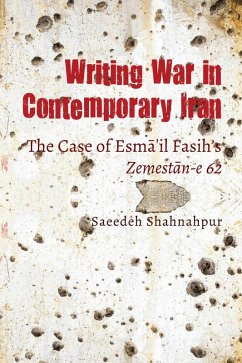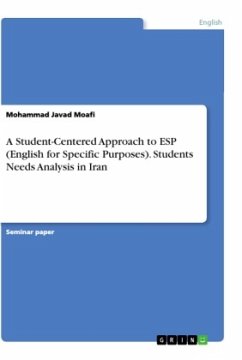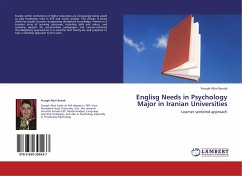Writing War in Contemporary Iran offers a complete account of Esma'il Fasih's life, works, and position in contemporary Iranian literature. This book uses a text-based analysis of Fasih's wartime novel Zemestan-e 62 (The Winter of '83, 1985) as a case study, and illustrates how the book set a precedent for anti-war novels that appeared in the period following the Iran-Iraq War. Unlike the many one-dimensional novels of the time which focused only on state ideology, Fasih's novel grapples with broader issues, such as the state's war rhetoric and the socio-political realities of life in wartime, including the impact of the War of the Cities on the daily lives of Iranians, government policies and their enactment, and the contribution of the upper class to war efforts. In this vein, The Winter of '83 was the first Persian anti-war novel that was different in that it did not present a glorified or heroic vision of the war and its participants. Furthermore, the book deals with the analysis of Fasih's postwar novels, which emphasized the roles and sacrifices of Iranian women during the war-a neglected theme in Persian war novels-marking him as one of the most culturally important war writers in contemporary Iran.
Bitte wählen Sie Ihr Anliegen aus.
Rechnungen
Retourenschein anfordern
Bestellstatus
Storno








